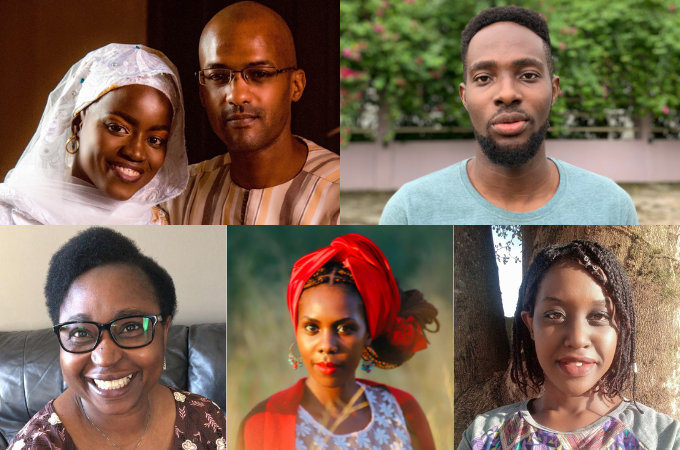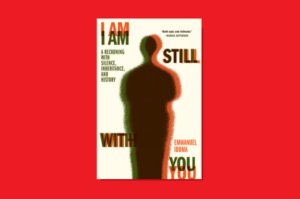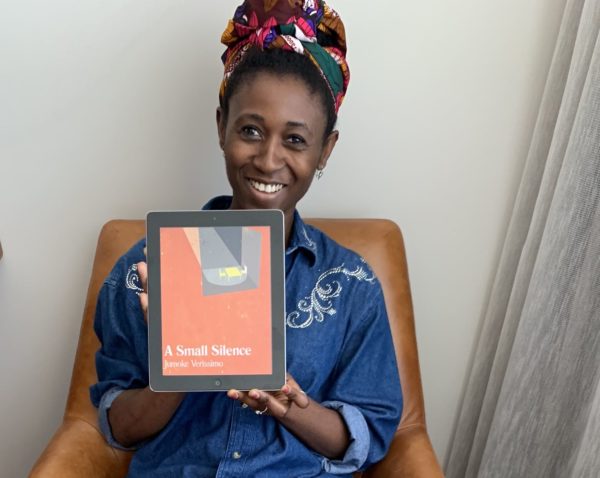
In the next few days, The Caine Prize will announce its winning story from its impressive and compelling shortlist consisting of five stories by writers from Nigeria, Uganda, Senegal and Botswana. Since its inception at the turn of the millennia, The Caine Prize has demonstrated an unwavering commitment to showcasing the most brilliant short stories written by African writers. Boasting of winners like Irenosen Okojie of Nigeria, Idza Luhumyo of Kenya, and Meron Hadero of Ethiopia, the prize has remained true to its goal of showcasing literary excellence from the continent, therefore it is no surprise that the 2023 shortlisted stories are at the cutting edge of innovation, voice and narrative expertise.
Perhaps the most outstanding thing about the stories in the shortlist this year is that although they all do many different things, each story succeeds as what it is meant to be, to portray and to embody. By this I mean that the writers have created otherworldly universes that they plunge us into with great care, detail and attention. In “This Tangible Thing,” Nigerian writer Yejide Kilanko weaves for us a world in which intergenerational reunions happen – Àjọkẹ́, a young girl born and raised in Canada returning home for the first time to meet her father’s mother, Bibíire on ancestral Yoruba land. In this tender rendering, we are offered an intimate look into the relational costs of migration, of how one’s own blood can become a stranger to itself, of how time, and stories, and history can form a bridge between far islands of self. Peppered with Yoruba folklore and deeply entrenched in a cultural pride that rises from the page, the strength of Kilanko’s story is its authenticity and heart crafted through beautiful sentences and tender scenes that transport us into a place of belonging and rootedness. In this age of mass-migration from the continent, especially the japa-wave of the Nigerian youth, stories like these are – now more than ever – necessary in our literary ecosystem and Kilanko does justice to the story through an impressive use of dialogue, solid characterisation and a crystal clear depiction of the sacredness of culture. “This Tangible Thing” earned its rightful place in the shortlist and shines brightly amongst many radiant stars.
There is a more complicated and potentially troubling intergenerational bond being explored in “Weaving” by Ugandan writer Yvonne Kusiima. We meet Thomasina; a young girl who has just lost her mother and has moved from the metropolis of Kampala to the village to live with her grand-aunt who weaves mats for a living. Thomasina as a character is expertly crafted with a narrative voice that is bursting with the ingenuity of childlikeness, coupled with a shocking observational accuracy, the kind that misses nothing. I am so enchanted by Thomasina that her reliability or believability becomes inconsequential to the arresting quality of her story. I want to hear everything she tells us almost as much as she wants to tell it to us herself, in ever meandering and uncontainable prose. I especially enjoyed the way the prose interrupts itself – truly embodying the kind of storytelling our mothers and aunties do, where the story of one person somehow becomes the story of four or five as a constellation of story star forms similar to golden threads making a tapestry one cannot tear their eyes away from. I enjoy the way in which the story depicts a multiplicity of maternal characters; how a stern and uncompromising task-master of a grand-aunt aids and abets an abortion, showing that women are never only just one thing. An ode to the complexity of motherless daughters, “Weaving” is teeming with life and a refusal to be contained.
It is evident that mothering, daughters and womanhood are central themes in the shortlist this year (thank you to the stellar panel of judges!) and in “Daughters by Our Own Hands,” Nigerian writer, Ekemini Pius crafts a story that tackles the reproductive burden of African women in an unusual and exciting manner. Set in a world where only a handful of women, called ‘breeders’ are able to have children if and only if they present with fingernails before their 18th birthday, we see a mother beside herself over the fertility of her daughter. A strength that shines through in this story is the construction of character especially in the person of Eme, Aniema’s mother. She accurately embodies that particular brand of Nigerian (or maybe even African) matriarch for whom barrenness is the ultimate curse, a thing that must be avoided at all costs. This desperation is rendered exquisitely and creates well-placed tension in the story. In quite an unexpected twist, the story tackles capitalism in the reproductive economy, a poignant subject for the times we inhabit. The story shines also with its exquisite sense of place, sprawling with sensory details that ground me within the story’s universe, settling me there as I journey along.
I can say – with utter and complete honesty – that I have never read anything like Tlotlo Tsamaase’s “Peeling Time (Deluxe Edition).” The story is masterfully inventive: first in its content and then in its telling. The story unravels itself in an otherworldly manner that causes one to read slowly, to peer between lines as we are taken into the dark underbelly of Afrofuturism, violence, sexism and death. Whereas stories about women and violence can often be one-dimensional or repetitive, Tsamaase avoids this pitfall by immersing us into a mystical/dream/spirit realm inhabited by a diabolical rapper/musical artist, Motsumi who engages the forces of muthi-tech (a biotechnological tool powered by trauma and darkness) to enter into the dream/spirit realm. The Motswana author wields lush and lyrical sentences to show us the underbelly of the creative industry, and all the ways it preys on women. Written entirely in fragments interspersed with lyrics, the story is a triumph of form experimentation, brandishing its uniqueness and pulsing with a new, seductive lifeform.
The fifth and final story is titled “A Soul of Small Places” written by the Senegalese duo of Mame Bougouma Diene and Woppa Diallo. Following the story of young Woppa Diallo and her family in Mataam, (the second hottest region in Senegal), “A Soul of Small Places” is a story of violence, retribution, loss and the enduring power of love. The writers establishing Woppa as a protagonist is no mean feat. After all, how often do we see a young girl become a carnivorous jinn that destroys men who prey on young girls? The story completely turns the concept of heroism on its head, empowering a young girl to enact such gruesome violence as a lifesaving endeavor. I love how the writers of this story reverse the dynamic of hunter/hunted for men/women, by empowering Woppa in this specific way, in a way that she can strike terror into the hearts of men, showing them that the cost of their actions is their life, is their blood spilled on the ground like rain. There is so much heart, texture and power in this story. The characters are so delicately crafted until they rise from the page into my mind, displaying their contours to me. I see the cost of violence, and what it means for a woman to be victorious, and that sometimes victory is never just triumph. Sometimes victory is intermingled with loss, with disappearance.
The stories of the 2023 Caine Prize Shortlist are centered around women in the most inventive and intriguing ways. All the stories – in their own unique ways – are rooted in the victory of women, no matter what that looks like. There is a very real sense in which they all strive for survival, on their own terms, in their own realities. They demonstrate to me that all our victories will not look the same, nevertheless we overcome. Selected by an all-female panel of judges, I am pleased by these selections and although I have a favorite that I am secretly rooting for, all of these stories have earned their right to be celebrated and are doing an excellent job of showcasing the literary brilliance brewing all over the continent.
***
Read Yejide Kilanko’s “This Tangible Thing” here.
Read Tlotlo Tsamaase’s “Peeling Time (Deluxe Edition)” here.
Read Mame Bougouma Diene and Woppa Diallo’s “A Soul of Small Places” here.
Read Ekemini Pius’ “Daughters, By Our Hands” here.
Read Yvonne Kusiima’s “Weaving” here.








COMMENTS -
Reader Interactions